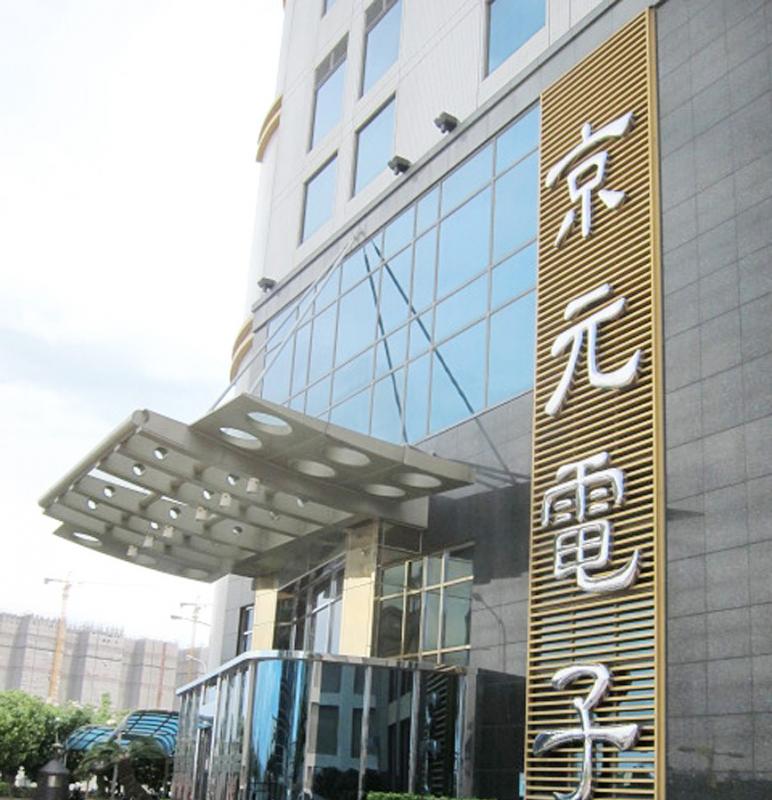Analysts are positive on IC testing service provider King Yuan Electronics Co’s (京元電子) outlook due to its customers’ commitment to communication chips and complementary metal-oxide-semiconductor (CMOS) image sensors.
While King Yuan’s revenue growth is likely to be affected by a loss of orders from China-based Hisilicon Technologies Co (海思半導體) due to US trade sanctions, orders from MediaTek Inc (聯發科) and others should fill the void left by Huawei Technologies Co’s (華為) chip division, Yuanta Securities Investment Consulting Co (元大投顧) said in a note last week.
King Yuan also counts Qualcomm Inc, Xilinx Inc and Nvidia Corp among its customers.

Photo: Hung Yu-fang, Taipei Times
The company had been expanding capacity significantly for HiSilicon over the past two years, with 30 to 35 percent of its capital expenditures spent to meet the Chinese customer’s testing demand, Yuanta said.
“Although we estimate a revenue gap of 15 percent next year on no Hisilicon contribution from the fourth quarter of this year, we still expect relatively flat growth in sales next year, thanks to strong demand for MediaTek’s 5G system-on-chip and power management ICs, as well as other customers’ graphics processing units, field-programmable gate arrays, CMOS image sensors and automotive-related chips,” Yuanta said.
With capacity adjustment from this quarter, King Yuan’s utilization rate and gross margin are to improve next year on the back of strong demand from customers, Yuanta added.
King Yuan shares closed 2.05 percent higher at NT$34.9 in Taipei on Friday, hitting its highest since Aug. 18. Year to date, shares have fallen about 7 percent.
“We believe this is due to expectations on easing China-US tensions after the US presidential election outcome and Huawei’s impact has been well digested,” Yuanta said.
King Yuan reported cumulative revenue of NT$24.26 billion (US$842.04 million) in the first 10 months of the year, up 16.83 percent from NT$20.76 billion a year earlier.
The company’s net profit for the first three quarters was NT$2.94 billion, up from NT$2.03 billion in the same period last year, or earnings per share of NT$2.41. Its gross margin reached 28.94 percent over the period.
The company’s revenue and gross margin for this quarter would continue to be pressured by a product mix adjustment and the New Taiwan dollar’s appreciation, but its business momentum is expected to resume growth next quarter at the earliest, analysts said.

Taiwan’s rapidly aging population is fueling a sharp increase in homes occupied solely by elderly people, a trend that is reshaping the nation’s housing market and social fabric, real-estate brokers said yesterday. About 850,000 residences were occupied by elderly people in the first quarter, including 655,000 that housed only one resident, the Ministry of the Interior said. The figures have nearly doubled from a decade earlier, Great Home Realty Co (大家房屋) said, as people aged 65 and older now make up 20.8 percent of the population. “The so-called silver tsunami represents more than just a demographic shift — it could fundamentally redefine the

The US government on Wednesday sanctioned more than two dozen companies in China, Turkey and the United Arab Emirates, including offshoots of a US chip firm, accusing the businesses of providing illicit support to Iran’s military or proxies. The US Department of Commerce included two subsidiaries of US-based chip distributor Arrow Electronics Inc (艾睿電子) on its so-called entity list published on the federal register for facilitating purchases by Iran’s proxies of US tech. Arrow spokesman John Hourigan said that the subsidiaries have been operating in full compliance with US export control regulations and his company is discussing with the US Bureau of

Businesses across the global semiconductor supply chain are bracing themselves for disruptions from an escalating trade war, after China imposed curbs on rare earth mineral exports and the US responded with additional tariffs and restrictions on software sales to the Asian nation. China’s restrictions, the most targeted move yet to limit supplies of rare earth materials, represent the first major attempt by Beijing to exercise long-arm jurisdiction over foreign companies to target the semiconductor industry, threatening to stall the chips powering the artificial intelligence (AI) boom. They prompted US President Donald Trump on Friday to announce that he would impose an additional

China Airlines Ltd (CAL, 中華航空) said it expects peak season effects in the fourth quarter to continue to boost demand for passenger flights and cargo services, after reporting its second-highest-ever September sales on Monday. The carrier said it posted NT$15.88 billion (US$517 million) in consolidated sales last month, trailing only September last year’s NT$16.01 billion. Last month, CAL generated NT$8.77 billion from its passenger flights and NT$5.37 billion from cargo services, it said. In the first nine months of this year, the carrier posted NT$154.93 billion in cumulative sales, up 2.62 percent from a year earlier, marking the second-highest level for the January-September